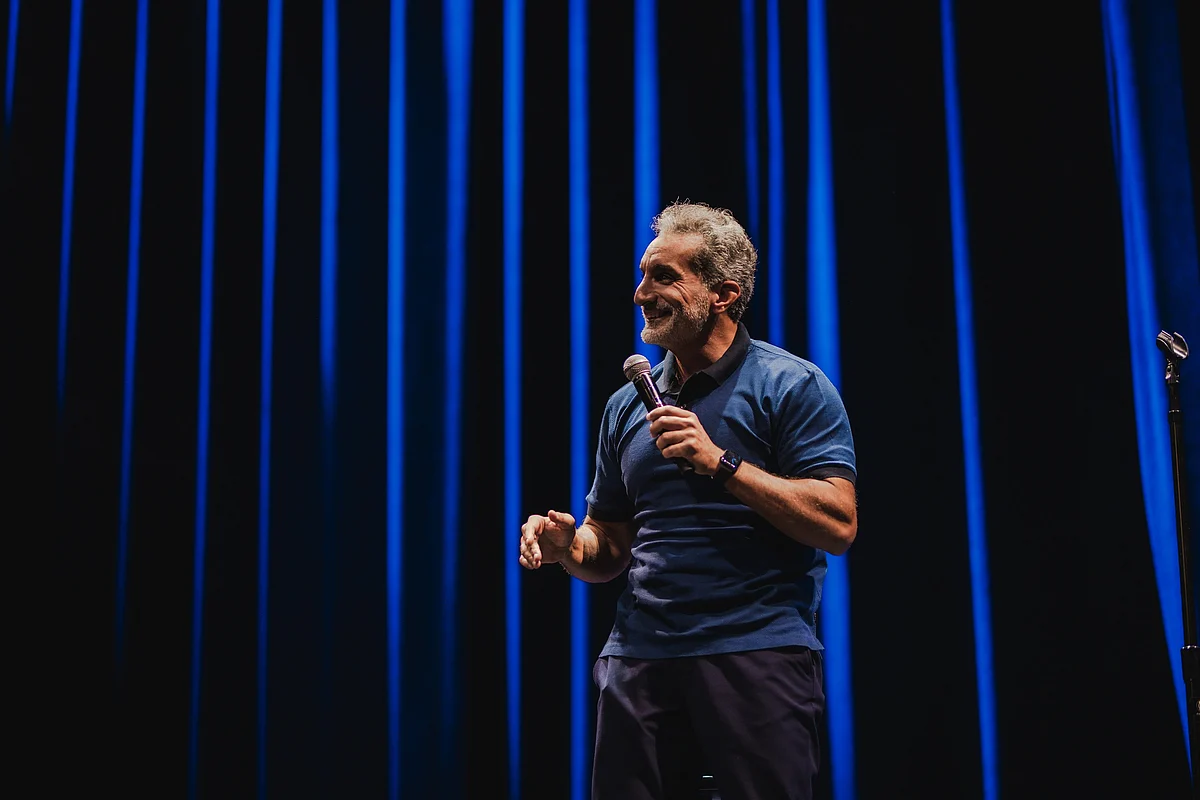
'I Don't Censor Myself': Bassem Youssef On Comedy, Identity, And Performing In Dubai
The last time we spoke to Bassem Youssef, it was 2023, and he'd told us he wanted to change the rules of stand-up comedy in Arabic. Two years later, on a late-night Zoom call, we ask him how that's going.
“Not far enough,” he says with a laugh that's equal parts resignation and resolve.
Recommended For You Want to be future-ready? Dubai's new 'micro-master' degree to train you for tomorrowIt's classic Bassem; he's honest, self-aware, and funny in the way only someone who's seen the absurdity of life up close can be.
These days, he's touring with The Belly of the Beast, an English stand-up show that explores what it means to live“inside a superpower empire.”
“It's heavy,” he admits,“but I try to make it funny.”
In his words, the show isn't just about jokes, it's a deeply personal reflection on identity. And that's exactly what makes it work.“Comedy is very personal,” he says.“It's what makes your comedy unique - it's what draws people in.”
The comedian is set to perform in Dubai on November 16 at Coca Cola Arena, in a show brought to you by Blu Blood and Dubai Calendar.
Youssef, who has performed in Dubai before, is quick to note how much the local comedy scene has evolved.“There's amazing young talent coming up from Egypt, Lebanon, the UAE, Saudi Arabia... it's beautiful to see,” he says, sounding genuinely proud.
He performs the same material whether he's in New York or Dubai - no edits, no filters.“I might change a few jokes for context, but I don't censor myself,” he says.“The kind of comedy I do doesn't leave space for censorship anyway.”
Still, nerves never go away.“Every single time,” he confesses when we ask if he still gets anxious before performing. The five minutes before stepping on stage are the most crucial.“You're wondering, will this joke work today? Will they get it? It's basically the fear of failure.”
And yet, that fear fuels him. After all, he's spent years making sense of a world that's often beyond reason.“You can't escape the news,” he says.“It's daunting, but you find the absurdity in it and use it. Comedy becomes a way to vent your frustration.”
Is it still about creating change, though?“No,” he says.“It's about coping. People romanticise comedians too much.”
Speaking of identity, he says,“Our identity is dynamic. It's not rigid. Mine changes - my Arab identity, my life in the States, it's all evolving.”
He's glad to see more Arab comedians rising globally, building their own stages, sometimes literally.“It's self-made,” he says.“They're finding venues, creating spaces. It's happening as we speak.”
We talk about jokes that can travel between cultures, and he insists that humour is more universal than people think.“The world is more open than we assume. The challenge is the craftsmanship, how to tell the joke so everyone understands it.”
When we bring up AI, his answer is the perfect mix of geeky and grounded.“I'd be amused and terrified,” he laughs.“You can't write jokes with AI; it can help with research, but the writing and delivery have to be you.”
As for taboo topics, he believes they're always contextual.“Off-limits is relative,” he says.“It's not about the topic, it's about how you speak about it.”
Before we wrap up, I ask what kind of feedback means the most to him. His response:“When people say, 'We laughed a lot, but you gave us a lot to think about.'”
And if he could roast anyone, who would it be? He doesn't hesitate.“The oligarchy,” he says.“They're spoiling it for everybody else.”

Legal Disclaimer:
MENAFN provides the
information “as is” without warranty of any kind. We do not accept
any responsibility or liability for the accuracy, content, images,
videos, licenses, completeness, legality, or reliability of the information
contained in this article. If you have any complaints or copyright
issues related to this article, kindly contact the provider above.


















Comments
No comment